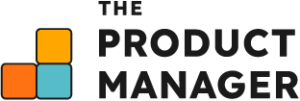A product manager’s specific role will vary from one company to the next. Still, all product managers must balance many aspects of their job, including customers’ needs, a vision for new products, and the project team. So what tools and strategies are needed to create a successful career as a product manager? What are the “5 Things You Need To Create A Successful Career As A Product Manager”? In this interview series, we are talking to Product Managers, founders, and authors who can answer these questions with stories and insights from their experiences. As a part of this series, we had the pleasure of interviewing Keely Arrington from Uprise Health.
Thank you so much for joining us in this interview series! Our readers find it fascinating to trace the evolution of a person’s career trajectory. Can you give me a brief rundown of your career history, from your very first job to the position you hold now?
My very first job was at American Behavioral, a company that offered employee assistance program (EAP) and behavioral healthcare services through client corporations and other health plans, which later got acquired and is now known as Uprise Health, my current employer. My role was in the provider relations department, where I worked on credentialing and recruiting providers into the network. Because of this position, I really got my hands dirty and it helped me understand the logistics of acquiring and maintaining a provider network. The role also familiarized me with the mental health space in general. From there, I worked in marketing and sales support, handling a fair share of RFPs and developing multiple pieces of marketing collateral for clients. Once American Behavioral was acquired, I moved into an account manager role, which was then changed into a client success position. I stayed in this role for about three years, really getting to know my clients and the mental health industry in a broader sense.
Most of the product leaders I’ve talked to sort of “fell into” product management and have become passionate about the job. What was the main event in your life that led you to this path?
The product manager role was definitely a position I worked for, but it wasn’t an opportunity that I was actively exploring until later in my career. While I was working in the client success role, I started learning more about the clients and the industry in general. Having a lot of knowledge and experience in the client world helped me to understand what they were looking for, what kind of products they were interested in, and what they needed to address their biggest pain points. Also being on the provider relations side and understanding how those two sides of the business come together really helped me carve this path.
I’ve often heard from people who work in the product manager capacity that it’s hard to explain what they do to family and friends. What do you say when someone asks, “so, what do you do for a living?”
It's a different conversation depending on who I'm talking to. If the person is well versed in the mental health innovative world, then I would say that I basically live in the future all of the time checking the pulse on the market and strategizing more effective ways for people to get access to the help they need. I'm always thinking about how we can make our solutions better or what the next new thing is in the market that we need to pay attention to in order to help people. Other times I simply say I work for a mental health app. It can sometimes be hard to explain how the employee assistance program services and an app can be talked about in the same sentence.
Let’s pretend money and social status don’t exist—what is most important to you about your work? What is the North Star in your career?
The most important thing about my work is that we are doing something that makes a difference in people's lives. I take it seriously because it's impacting people’s well-being, it’s how they're accessing care when and where they need it for both them and their families. Seeing how a product has impacted people is what motivates me to keep innovating and thinking about the next product to bring to the market could be.
Can you tell me a story from your professional experience that makes you a little emotional—a moment when you knew you were in the right line of work?
There's been a ton of stories, particularly working in client success. In one instance, there was a death of an employee on site that coworkers witnessed, which as you can imagine, was quite traumatic. The individual had family members and children who were traumatized as well. Just being involved and helping the immediate family get care, as well as helping the employees and coworkers cope and getting them access to counseling was very rewarding. This type of story has kept me in the field because I feel like I’m doing something that matters. We’re here to help people deal with mental health challenges and trauma, 24/7 365 days a week.
What are the qualities that you think make someone a great fit for product management? And conversely, what are some traits that would make you hesitate to recommend this profession?
A few traits come to mind – the first of which is flexibility. Typically, you’ll be involved in managing a lot of moving parts, and you need to be able to pivot and focus on whatever project needs your attention in the moment. Also, being able to listen is important. You truly must listen to what your clients are telling you and absorb where the market is headed to be successful. Lastly, you need to be innovative and think outside the box to address your client’s challenges while providing the best product possible. On the other side, someone who lacks active listening skills is likely not the best fit for a strong product management team.
When you think of the strongest team you’ve ever worked with, why do you think the team worked so well together, and can you recall an anecdote that illustrates the dynamic?
I immediately think back to when I was working in provider relations because our culture was unbeatable. We were known as the “Dream Team” and worked well together because we had developed professional friendships and trust with each other, which is so important for any team to function at a high and successful level. It is easier to put new ideas out there when you know your team won’t judge you. Feeling safe and secure and knowing you don’t have to be looking over your shoulder is an essential component of any successful team.
A lot of theory around project management focuses on frameworks and methodologies. Can you recall a situation you’ve dealt with where you’ve had to toss these things by the wayside and come up with a unique solution to a problem?
In my current position, scrum agile is the framework we use and I’ve come to be a believer in its effectiveness. Working in short sprints is great for the work we do with a lot of variables, and it helps me validate and better communicate with our stakeholders on things that are being accomplished and prioritized to incorporate feedback from internal and external sources as we go. It can be challenging to gain executive buy-in, especially if some executives are more adept to a Six Sigma, data-driven methodology. Meeting executive expectations that may seem to be conflicting the agile framework requires you to straddle the line between rigor and flexibility at all times and know when to jump into which lane. I think it helps to try to understand the priorities of my audience and exploit the information needed to be shared in a format that can be easily received. At the end of the day, it helps to remember that we are aligned to the same goal – which is to provide more value to our customers.
What are your “5 Things You Need To Create A Successful Career As A Product Manager” and why?
1 . Seek ongoing training: There are so many resources out there focused on product management. I recently attended the Pragmatic Institute, which was very helpful for me to understand how other product managers are progressing within their companies. There are so many different ways to apply the principles of being a strong product manager, and I would recommend having a foundational baseline of good practices for anyone looking to grow in this career.
2 . Have a good mentor: Having someone you trust and respect who can provide you with constructive criticism is invaluable, regardless of the industry you are in. It can also help you navigate some really difficult scenarios, especially if you're new to the job.
3 . Believe in the product: If you are not in a position where you're working on a product that you believe in and are passionate about, you’re not going to give it 110%. If you are uncertain about your product, then it's probably not going to set you up for success in your career. So, I think the best way to move a product forward is to be invested in it and to believe in it throughout the entire product roadmap.
4 . Find the best company for you. Similar to working on a product that you believe in, it is important to work at a company that treats you right and provides you with the tools needed to be successful. Aligning yourself with a company that has similar values and gives you a voice to speak out is important to grow and flourish in your career.
5 . Maintain a good work-life balance: Even working in the mental health industry and understanding the importance of not burning out, I can struggle with having a good work-life balance. Yet it's so important to make time for myself and my family and I think with any successful career, you have to have that. You can start to feel overwhelmed when you're first starting and getting your toes wet and it may be a point in your career when you feel like you have something to prove. It’s about finding that balance that allows you to make time for yourself and your family and not consistently staying on the job until 9 p.m. working on projects that can wait until tomorrow to be completed.
If you could inspire a movement that would bring the most amount of good for the greatest number of people, what would that be?
Through my years professionally in this industry, I’ve seen horribly traumatic events occur that have truly broken my heart. As a mom, I have to say that anytime we get a call that there has been a school shooting or violence on campus, it has kept me up at night with unbelievable grief for the faculty, students, and their families who are robbed of precious their lives. It also gives me great sadness that individuals who may exhibit warning signs of poor mental health frequently go on unnoticed or untreated. If I could inspire a movement, I would hope that it would breed mental health awareness initiatives and support that would directly impact the safety of our kids, educators, friends, families, neighbors and communities.
For more content like this, subscribe to The Product Manager newsletter.

